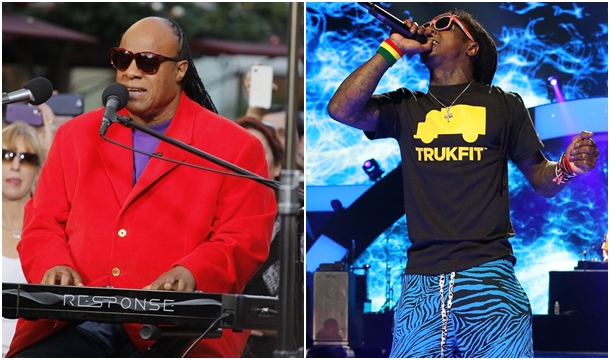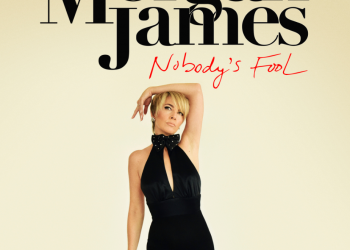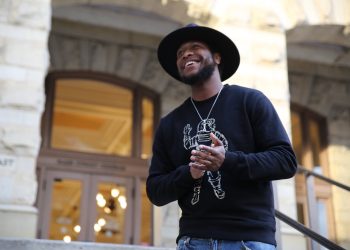Ironically transpiring during Black History Month, Lil Wayne’s comparison of a rough sex act to the vicious murder of Emmitt Till, a 14-year-old black teen in 1955 for whistling at a white woman on Future’s “Karate Chop” song caused a firestorm, one big enough for Epic Records to agree to take the song from the internet and re-release without the questionable lyrics. The exact lyrics begin with “Beat that pu**y up like Emmett Till,” and Wayne goes on to describe the amount of damage he wants to reenact in reference to the brutal crime.
Stevie Wonder took offense to the lyrics, and responded last Thursday. "You can't equate that to Emmett Till," Wonder said. "You just cannot do that. … I think you got to have someone around you that – even if they are the same age or older – is wiser to say, `Yo, that's not happening. Don't do that.'"
Words are powerful, and Wonder wants songwriters to take responsibility for the words they choose. "Sometimes people have to put themselves in the place of people who they are talking about," Wonder said. "Imagine if that happened to your mother, brother, daughter or your son. How would you feel? Have some discernment before we say certain things. That goes for me or any other (song)writer."
Rev. Jesse Jackson reached out to Wayne’s management on behalf of Till’s family to, while Epic agreed to pull the track. In a statement, the Epic states that version of “Karate Chop” was an unauthorized online leak, and they plan on scouring the net to have it pulled. “Out of respect for the legacy of Emmett Till and his family and the support of the Reverend Jesse L. Jackson, Sr. … we are going through great efforts to take down the unauthorized version,” the statement says.
The label assures that an authorized version will be released at a later date without the controversial lyrics.
It’s not often that a hip-hop artist responds to another rapper’s lyrics, but recently Stevie Wonder made an exception. After Lil Wayne referenced the late Emmett Till in one of his songs, Wonder spoke out against it and Epic Records agreed to pull the track from its streaming platforms. This article will explore how this situation unfolded and what lessons can be taken away from it.
The story begins with Lil Wayne referencing the 1955 murder of Emmett Till in a song called “Karma” featuring Big Sean and Lil Baby. The lyric reads: “Beat my [expletive] like Emmett Till.” In response, Stevie Wonder publicly condemned the lyric at a performance in London last month saying, “Think twice before you say something about someone who has passed on…put some respect on his name!” His plea was heard loud and clear by Epic Records CEO Sylvia Rhone who issued a statement saying they had pulled the track from all streaming services as soon as they became aware of the inappropriate reference.
This incident between two high profile artists is indicative of larger issues within our culture today. We must learn to think twice before we speak or write something about anyone, especially those no longer living who cannot defend themselves. As music fans, let us use this example to inform our behavior going forward.
Reaction To Controversial Lyric
The controversy surrounding Lil Wayne’s use of Emmett Till in one of his songs has sparked outrage among many fans and celebrities alike. Music legend Stevie Wonder was the first to respond, expressing his shock that a lyric referencing such an iconic civil rights figure could be used so flippantly. He called it “disrespectful and insensitive” and urged rappers to think twice before using language like this in their music.
Epic Records followed suit shortly after by agreeing to pull the track from streaming services following a petition with over 25 thousand signatures calling for its removal. This move shows how serious people are taking this situation, as well as a commitment on Epic’s part to listen to its audience when considering controversial content.
As both sides come together to address the issue, there can be no doubt that these actions send a powerful message about what is acceptable in modern hip-hop culture. It also serves as reminder that we must remain vigilant against any lyrics or ideas which cheapen or disrespect our shared history.
Record Label’s Response
Epic Records’ response to the outcry over Lil Wayne’s lyric was swift and decisive. The label agreed to remove the track from streaming services, demonstrating an understanding of how serious fans were taking this issue. This is a major win for those who have long been advocating for more respect in hip-hop music and culture.
It also shows that record labels are willing to listen when their audience speaks up about potentially offensive content. While it can be difficult to address these kinds of issues head on, Epic’s decision proves there is still room for nuance within the conversation surrounding rap lyrics.
Ultimately, this situation highlights both the power of public discourse as well as the need for artists to hold themselves accountable when using language that may be seen as disrespectful or hurtful. As we continue to grapple with what is acceptable in today’s society, moments like this serve as a reminder that progress remains possible if people come together and stand behind what they believe in.
Conclusion
I. Summary
In response to Lil Wayne’s lyrical reference to Emmett Till in his song “Kobe Bryant,” legendary musician Stevie Wonder called out the rapper for using such a serious subject matter as a punchline. Following this, Epic Records agreed to pull the track from all streaming services.
II. Reflection
This incident is an example of how powerful our words can be and how they should not be taken lightly. It’s important that we recognize issues like racism and police brutality as injustices, and not use them as cheap jokes or trivialize them in any way. We must also acknowledge when people are wronged and take action against those responsible for their mistreatment or exploitation no matter who it is.
III. Conclusion
No one should ever have to experience what Emmett Till did, or suffer from prejudice due to race or any other factor for that matter. As artists, it is our responsibility to spread meaningful messages through our music rather than glamorizing harmful behavior or celebrating violence against marginalized groups. Everyone deserves respect regardless of their identity, so let us ensure that we fight injustice wherever we see it and stand up for what is right every chance we get!








